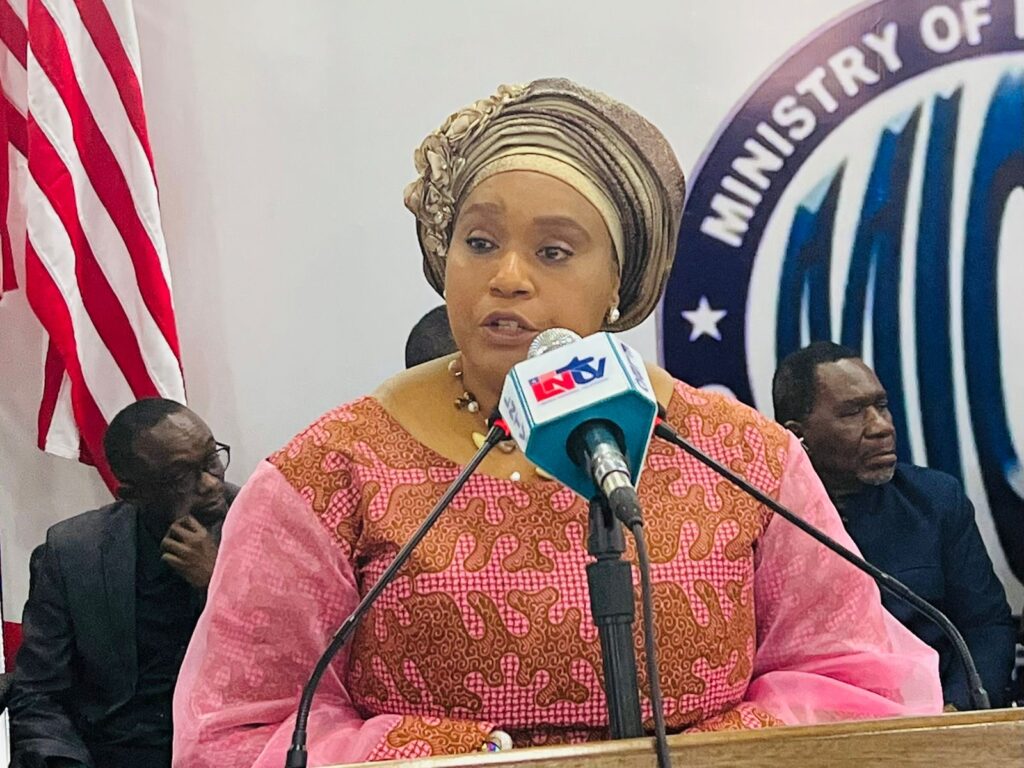By Jamesetta D Williams
In a landmark step toward national unity, the Government of Liberia will host a National Healing and Reconciliation Program on Saturday, July 5, at the Ministerial Complex in Congo Town, aimed at honoring the country’s past and setting a new path forward for peace and collective healing.
The announcement was made by Dr. Jarso Maley Jallah, Minister of Education and Chairperson of the National Reburial and Reconciliation Committee, during a press briefing at the Ministry of Information, Cultural Affairs and Tourism (MICAT) on Wednesday.
Dr. Jallah revealed that the initiative, mandated by President Joseph Nyuma Boakai, initially focused on organizing the reburials of former Presidents William R. Tolbert Jr. and Samuel K. Doe. However, the scope of the work expanded as the committee realized that reburials alone could not address the deep-seated pain and trauma Liberia has endured.
“Our nation’s grief stretches far back rooted in civil wars, political unrest, and public health crises. The blood that has soaked our land and the unresolved sorrow in our homes call for healing deep, intentional, and inclusive healing,” Dr. Jallah said.
According to her, the July 5 event is not a celebration, but a solemn national reflection to honor the victims of conflict and crisis and to begin a long-overdue journey of reconciliation. The program will include participation from former presidents, members of the three branches of government, traditional and religious leaders, civil society organizations, youth and women’s groups, the diplomatic community, and ordinary Liberians.
A key moment of the event will be the unveiling of a collage of names, honoring individuals who died during Liberia’s civil wars and public health disasters many of whom never received dignified burials. This symbolic act, she said, marks the beginning of deeper efforts to restore national dignity.
The keynote speaker for the event will be Rev. Dr. Antoine Witherspoon Cesare, an internationally respected expert in reconciliation and healing.
Responding to reporters’ questions, Dr. Jallah emphasized the inclusivity of the initiative, stating that “trauma knows no politics, and wounds have no party affiliation.” She assured that the event is open to all Liberians, regardless of political background or ideology.
She also addressed questions regarding the 1979 Rice Riots and the possibility of state funerals for its victims, clarifying that while state funerals fall under presidential discretion, the Committee is committed to honoring the memory of all victims if records can be retrieved.
Dr. Jallah noted that while many victims are no longer alive, healing must also include the living, particularly those left wounded, disabled, or emotionally scarred by Liberia’s decades of unrest. The committee has been collecting testimonies and input from citizens across the country as part of its work.
“Healing is for the living. You only need healing if you still carry wounds,” she said, adding that this is not just an event with speeches, but “a Kairos moment”a divinely appointed time for transformation.
She acknowledged that while the current mandate does not include reparations or the War and Economic Crimes Court, President Boakai remains committed to those processes, and related mechanisms are already being explored under his administration.
Highlighting the President’s personal involvement, Dr. Jallah shared that President Boakai has been working closely with the committee often late into the night demonstrating his deep commitment to national healing.
“Up until 1:00 AM, he was with us helping to solve problems and guide the process,” she noted.
While the committee’s formal work concludes with the July 5 event, a comprehensive report and set of recommendations will be submitted to the President to guide the continuation of the healing and reconciliation process.
As a trained mental health counselor, Dr. Jallah cautioned that unresolved trauma, if ignored, can destroy a nation from within.
“If we do not face our demons, they will follow us into the future. Liberia must confront its past not to dwell in pain but to find a path to peace,” she concluded.
She called on all Liberians to attend the July 5 program and be part of this national turning point.


